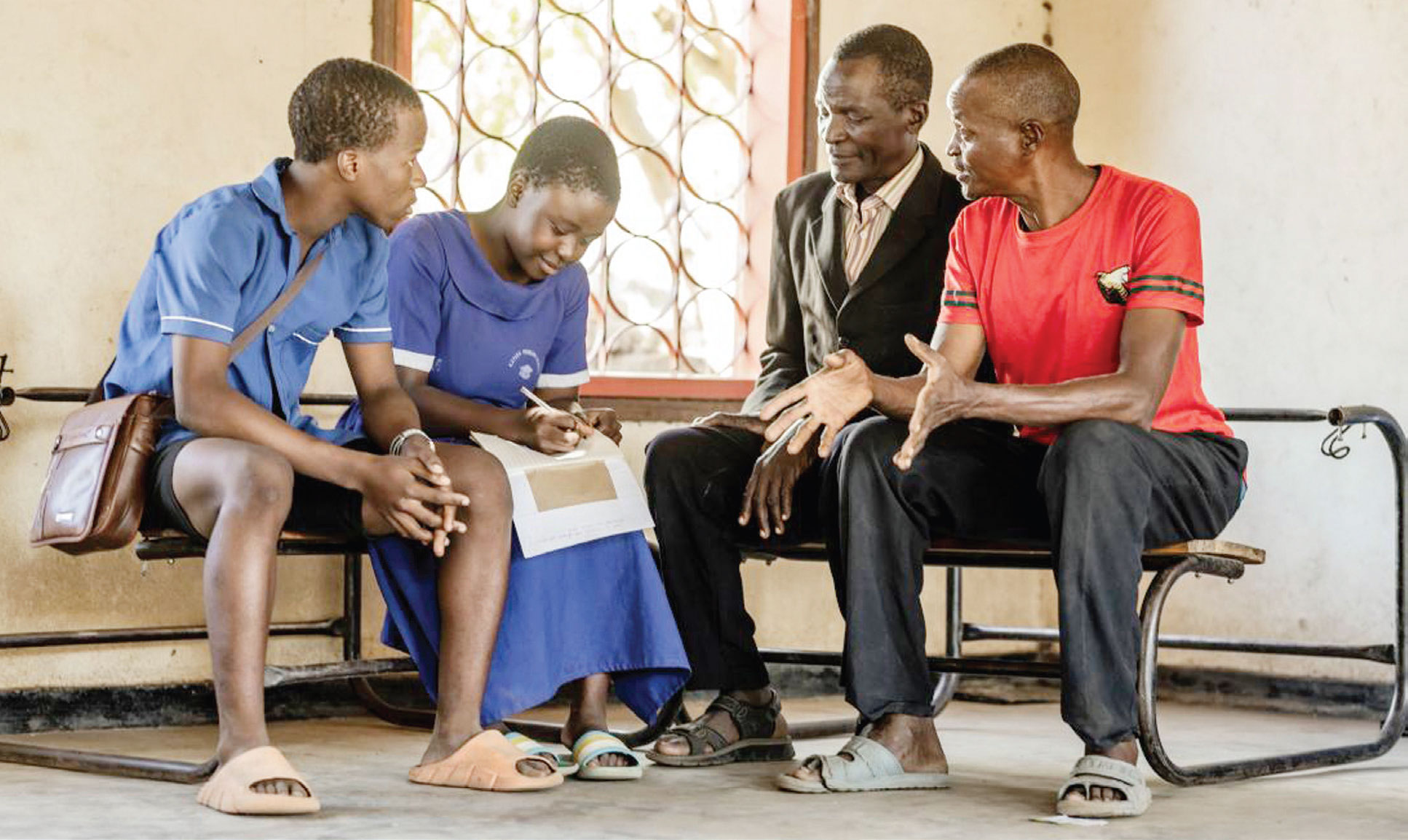Malawi graduates equipped for self-employment?
 When 24-year-old Catherine Malani of Ndaonetsa Village in the southern Malawi district of Mulanje failed to make it to university in 2002, she felt her future was doomed.
When 24-year-old Catherine Malani of Ndaonetsa Village in the southern Malawi district of Mulanje failed to make it to university in 2002, she felt her future was doomed.
“I am the last born in a family of six. The first two went to university and live a better life because they are working. One has a diploma in teaching and is a teacher, but the other two have MSCE. They are struggling to get jobs and I thought a degree would give me better opportunities,” says Malani.
“I observed this when I was in Form Four and I strived hard to do well on my MSCE examinations to go to university. Unfortunately, I did not, but still I had to attain tertiary education. Fortunately, my parents sent me for a parallel programme at the University of Malawi. I have a Degree in Business Administration,” says Malani.
However, though Malani got this marketable qualification, she is still unemployed.
“It is almost six years now since I graduated. I have applied for many jobs, but have not been successful so far. I have been shortlisted for interviews three times, but nothing came out of it. I know it is partly because I do not have work experience. Most adverts ask for people with some experience in the field,” she says, adding that she is planning to go to South Africa at the end of this month to look for jobs.
This raises the question as to whether university education is only a bridge to employment in Malawi or should students also be trained to be self-reliant in the event that they do not get a job after graduation?
Malani is just an example of thousands of successful graduates who live unemployed nationwide. University of Malawi alone graduates over 1 200 graduates every year and add to this graduates from the Catholic University, Mzuzu University, and others, the annual number of graduates is currently estimated to be about 3 000.
However, experts say only a fraction of the 3 000 graduates get employment.
Unfortunately, the current economic situation has not helped the situation, leading to this figure dropping tremendously over the past two years. Add to this people who have lost their jobs, due to the poor economy which has led to companies downsizing or closing shop altogether, and the situation calls for urgent redress, according to Malawi Congress of Trade Union (MCTU).
According to a 2012 survey by MCTU, due to the ailing economy, between 2011 and 2012, 4 000 employees lost their jobs. Contractual jobs which were pegged to grow up to 20 000, only went up to about 7 000.
This is a challenge on its own as it puts more pressure on fresh graduates, who now have to compete for jobs with people with vast work experience.
But does our tertiary education really prepare graduates for industry work?
Symon Chiziwa, a lecturer at the University of Malawi’s Chancellor College, argues that university education is not designed to provide students with hands-on experience, saying this is provided for in technical institutions. He says he believes that university education is designed to generate a community of scholars and seekers of knowledge hence no need to expect graduates with hands-on experience.
“University education helps to create a critical mass that can readily integrate into society and provide leadership. It is meant to produce educated people,” he says.
However, another university lecturer who spoke on condition of anonymity disputes this, saying graduates in journalism, performing arts, law and health, among other faculties, need to graduate with hands-on experience.
“It is important that graduates know what they will do when they leave the institutions. In companies, employees are just introduced to the organisation’s system and not actually taught what to do,” says the source.
So, why is it hard for graduates to become entrepreneurs or create own jobs instead of looking for employment?
Civil Servants Trade Union (CSTU) secretary general, Pontius Kalichero says this exposes that the quality of Malawi’s tertiary education is not attractive for industrial work until one acquires hands-on experience.
“Quality of college graduates is the main issue we need to be debating. Our tertiary curriculum exposes students to more theoretical work than practice. So, it is until the quality of graduates improves that this trend can disappear,” says Kalichero.
He adds that there is need to review the tertiary education curriculum and ensure it suits the demands of today.
Executive director of Civil Society Education Coalition (Csec), Benedicto Kondowe agrees that Malawi’s tertiary education system does not prepare graduates for industrial work. He points out two main contributing factors: first, the design of tertiary education curriculum in relation to the knowledge required in the industry, and secondly, college funding.
“We have good programmes in our public colleges, but the problem is the knowledge the graduates get at the end of their course and how to apply it when in the industry. The programmes we have currently keep students busy with theories and not practice,” he says.
Kondowe, however, says it is not too late to amend the situation, particularly at this time when Malawi is driving towards expansion in industrialisation.
He says government should increase university funding and “to increase the base of the practical part in all programmes”.
Last year, Centre for Social Concern (CfSC) blamed the country’s productivity on the gap between colleges and industry.
“There is no link between what training institutions offer and what the industry wants,” said CfSCs’ conditions and research officer Alex Nkosi in an article published in The Nation of August 22 2012.
Teveta executive director Yusuf Alide said during the Iveta conference in Mangochi recently that Malawi is faced with skills gaps at various levels, a development he says raises fears that Malawi may end up producing too many thinkers and few people who can perform practically.
“Malawi needs a robust human resource development which should be linked to potential areas of economic growth,” said Alide.





